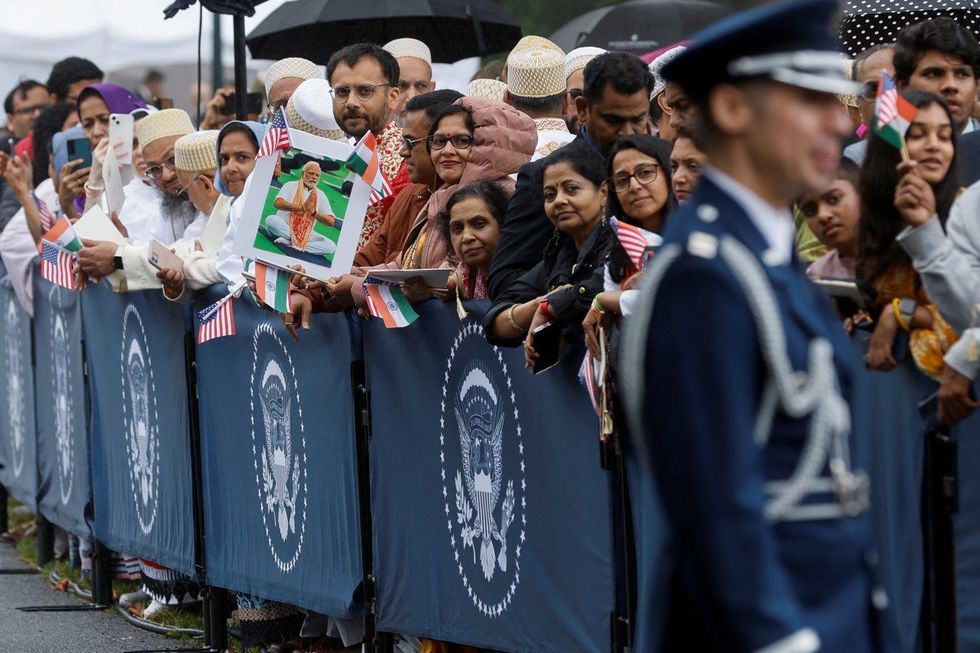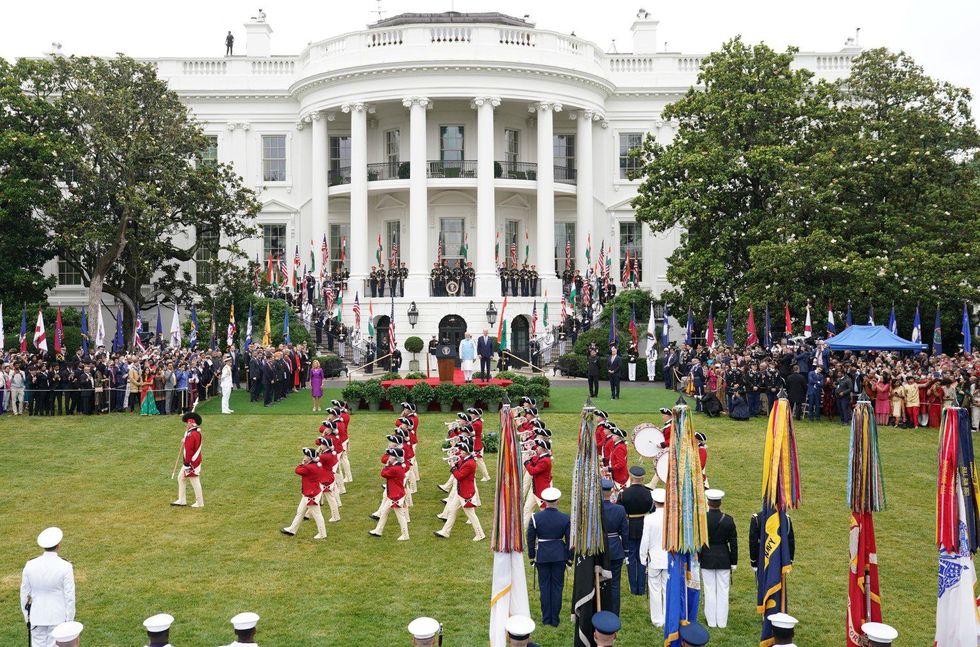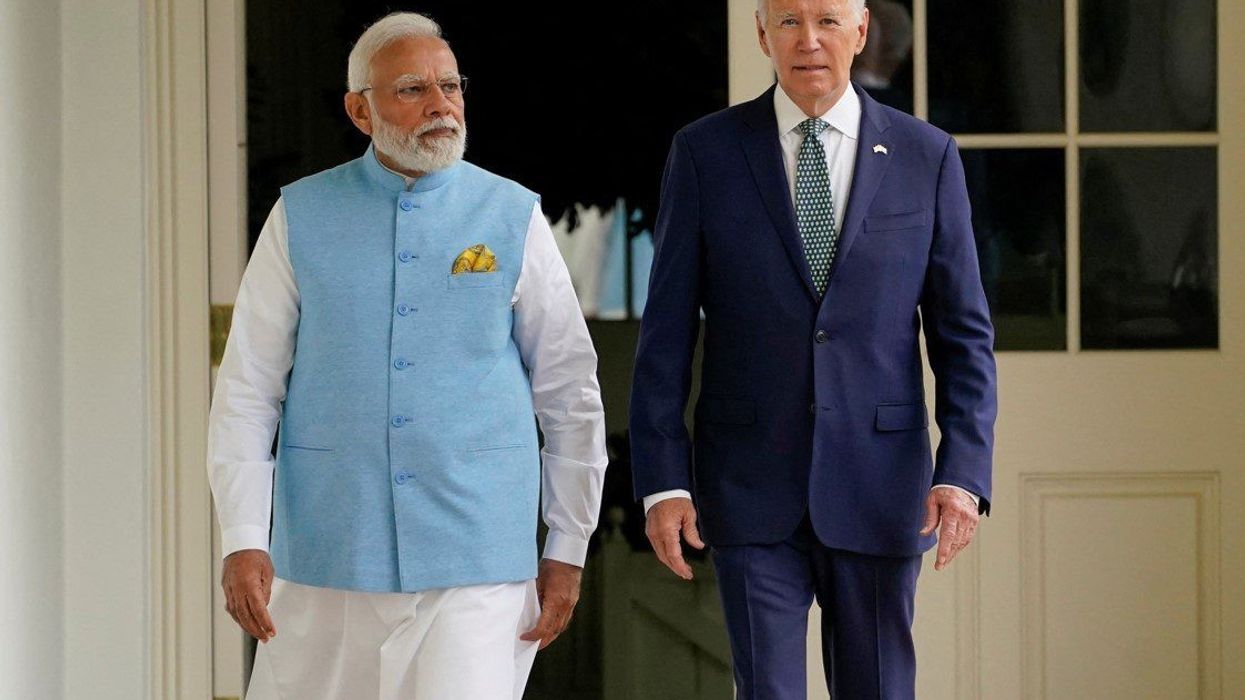A WEEKEND article in the Financial Times set out to explain “How India is slowly moving into the American orbit.”
The reality is that India is not moving into the American orbit nor America into India’s, but for some decades now the two countries have been drawing closer together. One reason is that both consider China a threat.
Even the way English is used in India is becoming more American. In Britain, Indians refer to “Mum”, whereas “Mom” has taken over in India. Indian students find it easier to go to the US, whereas in the UK, the current home secretary, Suella Braverman, despite being Goan herself, and her predecessor Theresa May, have attached higher priority to reducing student numbers.
The Indian-origin population in the UK is at least 2.5 million – not the 1.5 million that is wrongly used in official circles. As demonstrated by Eastern Eye’s Asian Rich List, the community continues to contribute disproportionately to the British economy, in the way that four million Indians are doing in the US, with several heading up major companies.
Prime minister Narendra Modi’s state visit to the US last week was given a flattering amount of space in British newspapers. But the pieces suggest that president Joe Biden, 80, made an error in not pressing the 72-year-old Indian leader harder on Ukraine and human rights.
In the White House press conference after their talks, Biden paid tribute to the Indian American population.
“We see that so clearly here in the United States where a vibrant Indian American community of more than four million strongly contributes every single day to the writing of the future of our nation,” the president said.

“Indian Americans of every background and faith, representing the full diversity of India, are pursuing their American dream, while maintaining deep connections for their Indian heritage and families. That makes us all stronger. That is a cornerstone of this essential partnership between India and the United States. And that is why I know the friendship between our nations is only going to grow as we face the future together.”
He added: “Our economic relationship is booming. Trade between our countries has almost doubled over the past decade to more than $191 billion [£150bn], supporting tens of thousands of good jobs in both India and the United States.
“And with this visit, Indian firms are announcing more than $2 billion [£1.57bn] in new investments in manufacturing – solar in Colorado, steel in Ohio, optic fibre in South Carolina, and much more.
“We’re expanding educational exchanges for our students, building on the record 125,000 student visas for Indians to study in the United States we issued last year and opening new consulates that’s going to make it easier for our people to travel, work, and collaborate together.”
Modi echoed Biden’s sentiments: “Friends, the most important pillar of our relations is our people-to-people ties. More than four million people of Indian origin today make significant contribution to the progress of America.
“In fact, just this morning, the large number of Indians that gathered at the White House demonstrates that Indian Americans, in fact, are the real strength behind our relations.
“In order to further deepen these relations, we welcome America’s decision to open consulates in Bengaluru and Ahmedabad. Similarly, we will also open a new Indian consulate in Seattle.”
It is worth stressing the relationship is not between Biden and Modi, who got on famously with Donald Trump – remember his cry of Abki Baar, Trump Sarkar – but between the US and India.
Meanwhile, British papers worry – unnecessarily to my mind – that America’s “special relationship” with the UK may be diluted if there is a parallel one with India.
In the Financial Times, Edward Luce, the paper’s former Delhi-based South Asia bureau chief, offered a caustic take on “America’s lavish red carpet for Modi”.
“‘Operation seduce Narendra Modi’ is not a new thing,” he commented. “But Joe Biden is taking flattery of India’s prime minister to new levels.
“At this rate, India’s leader might get the impression that America quite admires him. The thickness of America’s red carpet has nothing to do with Modi’s politics and everything to do with India’s geography. No other country has the size or potential to act as a counterbalance to China.
“It is true that there is nothing America could do to defend Indian secularism or restore what is left of its independent media. That is a task for Indians, though it seems a far-fetched one at this point.”
He summed up: “Behaving like a supplicant to the world’s most ruthless democratic backslider – the strongman who Donald Trump would love to emulate – is both crude and unnecessary. To Modi it will look like a green light.”
To be sure, there is a compare and contrast game going on. Biden was also very warm to another Indian (origin) prime minister, but Rishi Sunak came away with no prospect of the all-encompassing trade agreement for which, Trump had promised, Britain would be “first in the queue”.
The Daily Telegraph in London also raged at the US president for allegedly blocking the British defence secretary, Ben Wallace, from becoming the next Nato secretary-general.

A report in The Times from Washington by Alistair Dawber set the scene for the Biden-Modi encounter. It said 7,000 guests attended the White House welcome: “There are roughly four million Indian people or those of Indian descent living in America and there were chants of ‘Modi, Modi’ as he arrived at the White House. The two appeared to hold hands as they walked off the platform and entered the White House to begin their formal talks.”
It underlined the turn in events: “As recently as 2005 Modi, who is head of the Hindu nationalist BJP party, was banned from visiting the US having been accused, when chief minister of the state of Gujarat, of inciting violence that led to the deaths of more than 1,000 people, many of them Muslims.”
Winding forward, it said, “for all the bonhomie, there is frustration in Washington and elsewhere that the world’s most populous country has sat on the sidelines of recent global matters. Some in the US congress have questioned Biden’s enthusiastic welcome for Modi as eroding political, religious and press freedoms have been hallmarks of his nine years as India’s prime minister.”
It claimed that “the US has been frustrated by New Delhi’s reluctance to speak out on security and economic issues, particularly over Taiwan.”
There was also analysis in The Times by Catherine Philp, who hinted that America might be flirting with a new “special relationship”.
“Few leaders, even those of countries who boast a ‘special relationship” with the United States, receive a welcome as warm as the one being given to Narendra Modi in Washington,” she said, referring to the British prime minister.
She added: “Before the visit, Biden hailed the partnership between India and the US as ‘deep and expansive’, neither of which is strictly true.
“India has significant ties with Russia and has been one of the chief economic beneficiaries of the Ukraine war. It has refused to condemn Russia’s invasion and has thrown Moscow a lifeline by gobbling up its sanctioned oil exports.
“Washington’s rolling-out of the red carpet for Modi and the muted talk over India’s illiberal turn speak to a rebalancing of global power and the pre-eminence of China in the roster of American security concerns.
“Better to take what relationship with India can be forged on its terms than have none at all. If Pakistan was an ally, but never a friend, India may be the reverse,” she said.
For Britain, the best course of action would be to speed up the signing of the Free Trade Agreement with India, and make it even easier for British Indians to leverage the power of an economically resurgent India.




